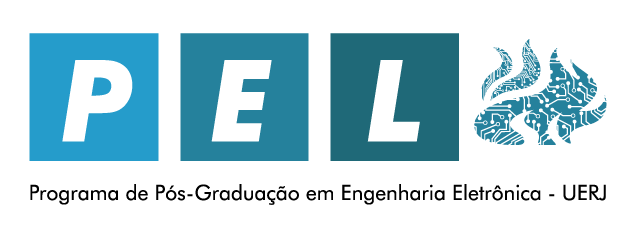Control and Automation Laboratory – LCA
Research in control, automation, instrumentation, mechatronics, mobile robotics, and their applications are carried out in this laboratory. This is a multidisciplinary area since it involves several topics, such as electrical circuits, control systems, modeling of dynamic systems, simulation, electronics and signal processing. This laboratory is equipped with microcomputers, data acquisition systems with A/D and D/A converters, sensors, actuators, and various components. Noteworthy are the UR10e industrial robotic manipulator and the Vicon high-precision position measurement system (accuracy better than one millimeter and 1 kHz sampling rate), particularly suited for experiments with quadcopters, vessels, and mobile robots.
Power Electronics and Automation Laboratory – LEPAT
In this laboratory, the work efforts aim for the research and development for the Control and Automation segment. The control of electrical machines, electromechanical systems, power systems, and other systems based on power electronics are emphasized. This is a multidisciplinary work field since it involves several topics such as, electrical circuits, control systems, modeling of dynamic systems, simulation, semiconductor devices, electrical machines, electronics, power systems, electromagnetism, and signal processing. This laboratory is equipped with microcomputers, digital oscilloscopes; development kits with digital signal processor (DSP); digital multimeters with true RMS measurement; function generators, sensors, actuators, photovoltaic panels, and several components.
Applications of Power Electronic Conditioners Laboratory – LAC2E
In this laboratory, research is conducted on the applications of power electronics converters used for power conditioning in electrical networks, whether low, medium, or high voltage, including the operation of electrical machines.
Regarding low-voltage networks, research focuses on controlling the energy produced by renewable energy sources, converter operations in microgrids, and real-time actions to improve key power quality parameters, such as power factor correction, AC voltage regulation, and active filtering of harmonic currents and/or voltages.
For medium- and high-voltage networks, research involves controlling the energy transmitted through HVDC (High-Voltage Direct Current) systems and applying FACTS (Flexible AC Transmission Systems) devices to stabilize the electrical system in which the device is installed.
In parallel with these activities, research is also conducted on rapid prototyping platforms, similar to those found in HIL (Hardware-In-the-Loop) platforms. Additionally, the laboratory is equipped with computers, oscilloscopes, FPGA (Field-Programmable Gate Arrays) circuits, and DSP (Digital Signal Processor) microcontrollers.
Computer Networks Laboratory – LRC
LRC provides the infrastructure to professors, colaborators, and students working in the Computer Networks and Distributed Systems subarea, develop their research projects. The projects are related to computer networks, distributed systems, middlewares, and ubiquitous applications. LCR is equiped with routers, switches, servers, computers, network adapters, sensors, and IoT devices, among other areas.
Modeling and Interactive Simulation Laboratory – LMSI
This laboratory is divided into two environments for carrying out student work and classes based on simulation and other computational resources.
Automatic Circuit Synthesis Laboratory – LSAC
This laboratory gives support to research development in the design, modelling, implementation, and testing of circuits and integrated systems, as well as computational resources for these activities. In this context, we have embedded systems design, including System-on-Chip (SoC), Network-on-Chip (NoC), Intellectual Property blocks (IPs). The design methodology consists of simulation, for functional validation of hardware, co-simulation, for functional validation of hardware/software integrated design (co-design), and prototyping, through synthesis with reconfigurable devices such as FPGA. The tools used for simulation and synthesis were acquired from Xilinx Inc. Besides this, the laboratory develops research projects in computational intelligence, employing techniques based on genetic algorithms, artificial neural networks, collective intelligence, swarm robotics and machine learning. The laboratory is mainly used by students from the M.Sc. course in Electronics Engineering and undergraduate students from the courses in Electronics Engineering and Telecommunications and in Systems Engineering and Computation, offering computers, prototyping boards, development kits, laser, and multifunctional printers.
Evolutionary Systems Laboratory – LSE
The Evolutionary Systems Laboratory (LSE) aims to develop evolutionary computing applications for solving engineering problems, focusing on the areas of: instrumentation, evolution/adaptation of electronic circuits and systems, fault detection and diagnosis, and wireless networks for industrial automation. Currently, the LSE is used for the development of prototypes and research by professors and undergraduate and graduate students at Universidade do Estado do Rio de Janeiro (UERJ).
Processing of Signals, Applied Inteligence and Communications Laboratory – PROSAICO
PROSAICO is dedicated to basic and applied researches in signal processing and imaging, communications, and smart systems applications. At this laboratory, the following research areas are developed: i) acquisition, processing, comprehension, and analysis of audio, biomedical signals, of energy systems, imaging and video; ii) Communication Systems; iii) analysis of failures in energy systems; iv) sensor network applications; v) terminal localization and positioning systems; vi) development of communication and sensing systems with microstructured fiber optics and study of nonlinear effects in optical fibers; vii) modeling of fiber optics systems through the finite element method and vii) analysis of performance, project, and optimization of antenna systems.
Programa de Pós-Graduação em Engenharia Eletrônica Laboratory – LAPEL
This lab provides computing resources to students and serves as a study room.
Industrial Networks and Automation Systems Laboratory – LARISA
This laboratory aims to develop intelligent instrumentation, that is, the use of computational intelligence (artificial neural networks, genetic algorithms, genetic programming, and machine learning) in instrumentation, sensors, actuators, and wireless networks for automation applications. In addition, LARISA enables the formation of a critical mass aimed at qualifying human resources for the specification, implementation, and configuration of instrumentation systems, industrial wireless networks, and automation systems. Currently, LARISA is used to develop research by professors and undergraduate and graduate students at UERJ. It is registered with the National Petroleum Agency (ANP). ANP Accreditation No: 670/2015.
